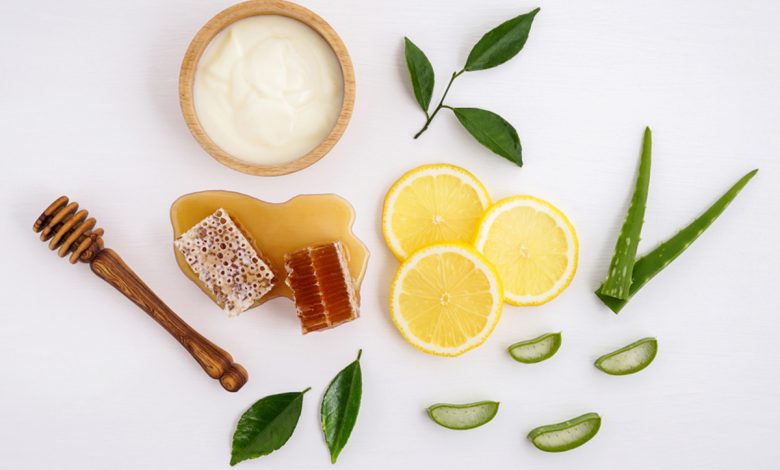
Excessive pollution and an unhealthy lifestyle that leads to skin deterioration, acne, pimples, dark spots, and UV radiation damage are all too typical in our day and age. Because regular skin degradation can be permanent, you’ll need a skincare routine that you can use on a regular basis to battle pollution’s impacts and heal and revitalise your skin. Because its organic characteristics are fully safe and simply benefit its users, vitamin C powder is an excellent long-term option. It provides people with smooth, problem-free skin while also reducing stress and anxiety and revitalising them.
Homemade Vitamin C Face Mask Benefits
We’ve covered the advantages of Vitamin C face masks in this article.
Treat Acne: Vitamin C is recognised for its exfoliating and sebum-releasing properties, which help to minimise pimples and acne; it also uses micronutrients to help scars and blemishes heal. Vitamin C is an acidic substance that can be used as an exfoliator. It can exfoliate dead skin cells from the surface of the skin, leaving it smoother and brighter.
Anti-aging: Vitamin C efficiently reduces the impacts of UV rays that generate fine wrinkles, as well as improves the skin’s oxygen absorption properties, resulting in a more youthful appearance. It’s never too soon to begin an anti-aging routine. This is where this nutrient comes in handy. It is important for collagen formation, which is necessary for decreasing wrinkles and fine lines, as well as tightening the skin to keep it from drooping.
Improve Complexions: Vitamin C powder is said to be a great component of skin. Our skin is harmed on a daily basis; it provides relief from hyperpigmentation and a clear complexion. It soothes sensitive skin and minimises redness and irritation, resulting in a more even complexion.
Homemade 5 DIY Vitamin C Face Mask Recipes
You’re undoubtedly curious about how to use Vitamin C now that you’ve learned about its benefits. It’s simple and inexpensive, and we’ve put up a few DIY Vitamin C powder recipes.
1. Vitamin C and Turmeric Face Mask
When vitamin C and turmeric are combined, they have additional benefits. Turmeric, as you may know, is one of the most powerful antiseptics, and as a result, it provides excellent protection against pimple-causing bacteria.
Ingredients:
- Vitamin C Powder – 2 Tablespoons
- Turmeric Powder – 1 Tablespoon
- Sweet Almond Oil – 2 Tablespoons
Direction:
- Mix 2 tablespoons vitamin C powder with 1 tablespoon turmeric powder in a small mixing basin.
- 2 tablespoons sweet almond oil, adjusted as needed, and thoroughly mixed until a smooth paste is achieved.
- Apply this paste to your damp face in a circular motion with your finger.
- Allow for 30-40 minutes of resting time.
- Remove it with water or a herbal face cleanser.
2. Vitamin C and Honey Face Mask
Vitamin C is well-known for its health advantages, but honey isn’t far behind; it will serve as a binder in our recipe. It moisturises the skin, which helps to achieve bouncy cheeks.
Ingredients:
- Vitamin C Powder – 2 Tablespoons
- Honey – 2 Tablespoons
- Golden Jojoba Oil – 1 Tablespoon
Direction:
- In a small bowl, pour 1 tablespoon of golden jojoba oil, provide a smooth skin with 2 tablespoons of honey, make a fine mixture.
- Add 2 teaspoons of vitamin C powder to the mixture and whisk until it reaches a smooth consistency, making sure no lumps remain.
- Apply the mixture to a damp face, but do not rub it in.
- Allow 30 minutes to pass before washing with water. If you don’t have much time, you can rinse it after 15 minutes.
3. Vitamin C and E Face Mask
Vitamin C cleans your skin and removes discolouration, whereas Vitamin E protects your skin from harmful factors and moisturises it, improving the overall appearance of your skin.
Ingredients:
- Vitamin C Powder – 2 Tablespoons
- Vitamin E Oil – 3 Tablespoons
Direction:
- It’s one of the easiest recipes to make: combine 2 tablespoons vitamin C powder with 3 tablespoons vitamin E oil, and adjust the oil if necessary. To blend, simply give it a little stir.
- Because this mixture is quite thin, gently apply it to your face using a cotton ball.
- After 10 minutes, this oil will be absorbed into your skin; it is not necessary to wash it off, but you may do so if preferred.
4. Vitamin C and Glycerin Face Mask
Like Vitamin C powder, vegetable glycerin is an antibacterial and antimicrobial ingredient that aids in the elimination of dead cells and excess oil. This oil can offer you a clear, even complexion if you use it on a daily basis.
Ingredients:
- Vitamin C Powder – 4 Tablespoons
- Vegetable Glycerin – 1 Tablespoon
- Fresh Curd – 2 Tablespoons
Direction:
- To begin, whisk together 1 tablespoon vegetable glycerin and 2 teaspoons fresh curd.
- Adjust the curd to form a smooth paste by adding 4 tablespoons of Vitamin C powder.
- Apply this paste to your damp face in a gentle, circular motion. Do not massage.
- Allow for 20-25 minutes of resting time.
- Rinse it off with water or a facial cleanser.
5. Vitamin C and Rosehip Detoxifying Face Mask
Rosehip oil has a good detoxifying effect on your face, removing blackheads, whiteheads, dark spots, and blemishes. Vitamin C helps to unclog pores, and rosehip oil has a wonderful detoxifying effect on your face by removing blackheads, whiteheads, dark spots, and blemishes. This recipe will astound you if you use it on a regular basis.
Ingredients:
- Vitamin C Powder – 3 Tablespoons
- Rosehip Seed Oil – 4 Tablespoons
Direction:
- Another easy recipe is to combine 3 tablespoons vitamin C powder with 4 tablespoons rosehip seed oil and mix thoroughly.
- Apply this face pack gently to your moistened face and massage it in a circular motion.
- Allow the face pack to settle for another 20-30 minutes.
- Use water or an organic face wash to cleanse your face.
Note: These face pack recipes can be used on a regular basis; once or twice a week should be enough.
Conclusion
Vitamin C has several benefits and can be used in a variety of ways. This wonder component is well-known in the cosmetic industry for its ability to eliminate black spots, but chemical-based treatments usually come with a catch. These face masks are made entirely of natural ingredients and are completely safe, making them a superior option. However, a patch test of all substances is essential to see if you have an unfavourable reaction in common.




